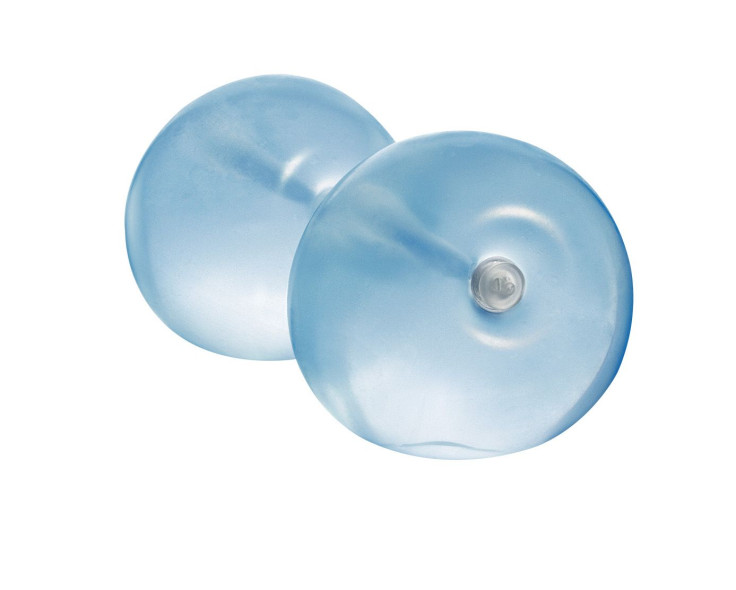FDA Approves A Balloon Device Intended To Help People Lose Weight For The First Time

For obese people who have long struggled with maintaining weight loss, the answer to their problem might be found in a balloon — two balloons to be exact.
Earlier today, the Food and Drug Administration (FDA) announced its approval of The ReShape Integrated Dual Balloon System.
“For those with obesity, significant weight loss and maintenance of that weight loss often requires a combination of solutions including efforts to improve diet and exercise habits,” said Dr. William Maisel, acting director of the Office of Device Evaluation at the FDA’s Center for Devices and Radiological Health, in a statement released today by the FDA. “This new balloon device provides doctors and patients with a new non-surgical option that can be quickly implanted, is non-permanent, and can be easily removed.”
As Medical Daily has previously reported , gastric balloon devices have become a popular weight loss treatment in other countries like the U.K. They generally work by physically, but not permanently, taking up space in the stomach, creating the sensation of fullness earlier than usual and thus limiting appetite. But these devices have notoriously remained off the market in the United States until now. Though they’re considered relatively safe, their effectiveness is limited by the balloon’s duration inside the stomach. In other words, once the balloon is removed, the worry is that the person will return to the same lifestyle habits pre-device and regain the weight.
Though the FDA’s statement doesn’t elaborate on why the ReShape system was the first one to break through the mold, it does seem to have certain unique characteristics over previous devices. By utilizing two connected balloons, the device is able to expand more while remaining more flexible to the contours of the stomach. According to its creators, ReShape Medical, the ReShape device is also less susceptible to accidentally deflating and ending up in the intestine, a side-effect that has plagued other versions.
“While intragastric balloons have been used successfully outside of the U.S. for many years, there has been little design improvement or innovation of this treatment,” said Rick Thompson, President and CEO of ReShape Medical, in a statement by the company. “We looked closely at previous balloons when designing our dual balloon and we feel confident that our unique, next-generation design will help to deliver sustained results and significant life changes for patients.”
In a randomized and controlled clinical trial of the treatment that ran for a year, obese ReShape patients (187 out of 326) lost an average of 14.3 pounds, compared to 7.2 pounds for the control group by the end of six months, when the device was taken out. Both groups were given exercise and diet counseling and the control group was led to believe that they had received the device by being given the same 30-minute outpatient procedure as the active group, but weren’t actually implanted with it. After removal, the patients, on average, maintained about 10 pounds of their weight loss. Other studies, conducted abroad, have found even more success.
“Through clinical studies in the U.S. and abroad, ReShape has now been used by hundreds of patients,” said Dr. Jaime Ponce, lead investigator of the American trial, in a statement. “Positive data from the rigorously designed pivotal study, coupled with commercial experience in Europe, demonstrate that ReShape can provide an important new non-surgical option to help patients in the U.S. lose weight and give them the tools needed to keep it off.”
Perhaps to alleviate concerns of fading effectiveness, the ReShape device will come packaged with a 12 month-long diet and exercise regimen alongside counseling in order to ensure that patients are able to permanently adhere to their lifestyle changes once it’s taken out. The FDA has only approved the device for those who have failed at previous weight loss attempts using diet and exercise alone and who are suffering from at least one obesity-related health condition. Though it is also only recommended for mild to moderate obesity (a Body Mass Index between 30 to 40), that last restriction may actually be more of a positive.
“In the past, bariatric surgeons have had few options to offer patients who did not qualify for bariatric surgery,” said Dr. Ninh Nguyen, former president of the American Society for Metabolic and Bariatric Surgery, in the same company statement. “The approval of ReShape opens up a new opportunity for these patients or patients who are not ready for surgery, by providing an effective nonsurgical treatment to help them with their weight loss and a path to a healthier lifestyle.”
Here’s hoping.
Published by Medicaldaily.com



























